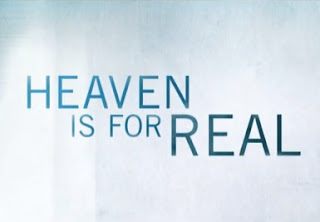Eulogy for William L. Dunn, 1931-2018. Funeral Mass at St. Mary
Church of the Visitation, Clinton, Conn. Feb. 24, 2018.
On
behalf of my mom and the rest of the Dunn family, I want to thank you so much
for coming here today and supporting us during this difficult time. We really
appreciate it.
Did
you happen to read my dad’s obituary in the paper? Two graduate degrees. Four
years in the Navy Reserve. Two years in the Army. School teacher in New Haven
for 27 years. Head lifeguard at the town beach. Created and ran the Town Beach
summer youth program. Clinton’s first ever Park and Rec Director. Then, after
retiring from teaching, a second career as Public Relations Director for the
Water company. And then 4 years as probate judge.
Then…
in his spare time, he was a Clinton Police commissioner, Vice Chair of the
Democratic Town Committee, past President of the Clinton Rotary Club, past
President of the Clinton Men’s Softball League, past Director of the Clinton
Chamber of Commerce, a Founder and past President of the Clinton Touchdown
Club, and a former board member of the Connecticut Economic Resource Center.
And he
taught us how to swim, how to throw a curve ball, and how to shoot foul shots.
He built a full-size basketball hoop and backboard in the yard, a puppet show
theater, doll houses for the grandkids, and he built 3 additions onto the
family home—all of which, I’m happy to report, are still standing and not
leaking.
He
loved working in his garden, and tinkering at his work bench in the garage, and
some of his colorful creations are still the talk of the neighborhood.
When
did he find time to sleep?
I’d
like to share a few thoughts about my dad. The first thought is similar to a
famous quote by Mark Twain, who said, “When I was a boy of 14, my father was so
ignorant I could hardly stand to have him around. But when I got to be 21, I
was astonished at how much the old man had learned in seven years.”
I can
relate. When I was a teenager, I was pretty sure I knew everything, and I was
certain my father knew nothing. But only after I became an adult, and
especially after I got married and started a family, did I begin to appreciate
and admire what my father did.
First
and foremost was the fact he and my mom raised 5 kids. After raising 2 children
with Joyce, I can’t comprehend how they were able to handle 5! (Look up.) OK,
Aunt Loretta and Aunt Liz are looking down right now and saying, “Um… Hello?”
If you
don’t know, my Aunt Liz had 8 children, and my Aunt Loretta had 6. They
probably said to my parents, “Are you guys even Catholic?!”
Anyway,
he raised 5 kids on a teacher’s salary. If you remember, back in the ‘60s and
‘70s, teachers were paid less than a trainee at McDonald’s. But Dad always
worked extra part-time jobs to make ends meet. And we always had a roof over
our head, food on the table, shirts on our backs, and sneakers on our feet. (That’s
right: we had no pants.)
When I
think back to our youth, now from an adult perspective, I’m amazed at my dad’s
courage. He did things I would be too cautious to even bother trying.
For
example, in the mid-60s, he and a few other men in town—Jim Beardsley, John
Davis, Bob Richards, Hank DeMazza—decided we needed a youth football program.
So, they just went out and created one out of thin air.
At the
time, I had no idea how hard they worked to make that dream a reality. And how
much resistance they faced: all the people who mocked them and said there were
too many obstacles. But they did it, and Dad was one of the founding fathers of
the Clinton Touchdown Club, one of the club’s presidents, and the head coach of
the mighty Clinton Packers. Countless hours, and all volunteer.
I
remember another time when my father displayed amazing courage and
perseverance: the Summer of the Lobster Pots.
My
father loved lobster; it was a real treat. An in the late 60s he was upset that
the price of lobster had gone up to something like 65 cents a pound. Highway
robbery!
So, he
decided to get lobsters directly out of Long Island Sound. He bought a used
boat, which he named the “Leprechaun.” He bought a brand new outboard motor. He
got the registration and insurance. He rented a slip at the town dock. He
bought 6 new lobster pots, and paid for the special fishing license. He made
buoys out of old Clorox bottles, and painted them green.
Finally,
he got the bait fish. Since lobsters are scavengers, the older and smellier the
bait, the better. And there’s nothing more invigorating to the senses then
filling up a bucket with fish that’s been sitting in the sun for 3 days, and
then driving from Westbrook over to the docks in Clinton with that bucket inside
the green van. What a fun ride.
So, he
put his 6 pots out by the breakwater past Clinton Harbor, with the pots at the
bottom and rope connecting them to the buoys on the surface. And we started
catching lobsters. It was great.
However,
after a while, we found out that professional lobster fishermen don’t take too
kindly to amateur lobster fishermen. One day we chugged out to the breakwater
in the Leprechaun and discovered all of our lines had been cut. The green buoys
had drifted away and the pots were lost at the bottom of the Sound.
That
ended the lobster adventure, but we ate a lot of lobster that summer, and if
you add up the cost of the boat, the motor, the insurance, the license, the
lobster pots, and the bait, it worked out to only 300 dollars a pound.
My dad
embarked on many other adventures, such as the Baseball Road Trip. One day he
and myself and Timmy and Jerry piled into the van, and we headed out on a
Friday afternoon. We saw a Mets game that night in New York, a game in
Philadelphia the next day, and a Red Sox-Orioles double-header on Sunday in
Baltimore. And we slept in the van at rest areas along the Jersey Turnpike. It
seemed like the Ritz-Carleton to us—except with no shower, and you had to walk
across a parking lot and use the bathroom with a bunch of truckers. But we
loved it!
The
greatest adventure of all had to be the famous cross-country trip. My dad
bought a pop-up camper trailer, and hitched it to the green van. All 7 of us
piled into the van and we went on a 30-day, 7,000 mile saga around North
America.
On
that journey we saw Niagara Falls, Mount Rushmore, Yellowstone Park, the Golden
Gate Bridge, LA, Disneyland, and Las Vegas. We stayed at the Arcand’s house in
Washington State during the middle of the trip.
We
almost lost the camper in Idaho; almost lost our lives in East St. Louis; and
almost lost our minds if we hadn’t returned home when we did. But it was an
amazing adventure. Such vivid memories, even though it’s been almost a half-century
ago.
My dad
had loads of courage, and when he wanted to do something, he just went out and
made it happen. And he had tons of perseverance. Sometimes we may have instead
used the word stubborn. But he was a bulldog; he was not a quitter.
My
father lived a long, full life. He strongly believed it was important to do
things, not just sit around and think about doing things. Which made it so
frustrating for him these last few years. But he leaves behind a terrific
legacy. He was all about family. The family was the most important thing in his
life.
During
these recent difficult and sad days, I’ve been clinging to my favorite Bible
verse: John 16:33. Jesus told his followers: “In this world you will have
tribulation.” Well, no kidding, Lord. Life has a lot of heartache and sadness,
sickness and pain, sin and death.
Then
the next thing Jesus said was, “But be of good cheer.” Um, what? Life is filled
with pain, but we’re supposed to pretend everything is fine?
Well,
it all makes sense when you include the final phrase. The entire statement
Jesus made was: “In this world you will have tribulation, but be of good cheer,
for I have overcome the world.”
That’s
the key: Jesus has overcome the world, and all its pain and sorrow. His death
paid the price for our sins, and his Resurrection conquered death once and for
all. And best of all, he promised that if we put our faith in him, we too can
live forever in the paradise of Heaven.
And I
am 100% convinced that just one week ago my dad had a wonderful reunion with
his mother and father; with his brother Dan, and sisters Anna, Loretta, Jane,
and Liz. And all the pain and struggle he endured in recent years is over.
And
I’m convinced that we will have a wonderful reunion with him someday, because
God’s love and mercy are more powerful than sin and death.
So,
thank you again for coming here today. Please join us afterward in the church
hall for a reception—and there’s tons of food, so you gotta come. We can share
a few tears and share a few laughs. But most of all, we can be of good cheer
despite this tribulation, because the Lord has overcome the world.
Thanks
again, and God bless.




















































